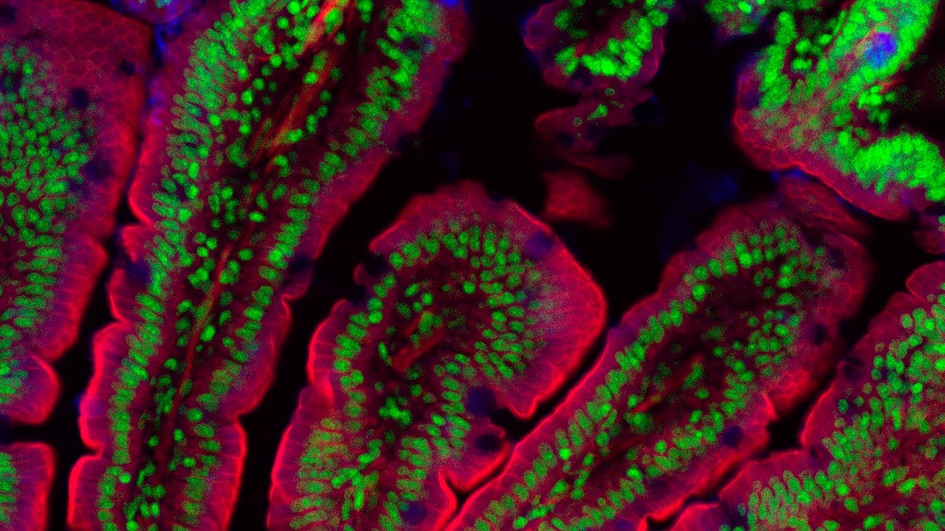 |
| Section of a mouse gut. Credit–Kevin Mackenzie, University of Aberdeen |
CANCER DIGEST – Oct. 10, 2021 – New research shows that gut bacteria can compensate for androgen deprivation therapy often used in prostate cancer to block hormone driven cancer growth. The findings show that low androgen levels resulted in growth of gut bacteria that become hormone factories, thus providing an alternative source of cancer growth-producing hormones.
Using mouse models of prostate cancer, an international collaboration of researchers from the UK and Switzerland performed a series of experiments that showed gut bacteria plays a role in prostate cancer resistance to hormone deprivation therapy. In one experiment they showed that eliminating all gut bacteria slowed tumor growth and delayed the emergence of hormone resistance.
In another test, transplanted feces from mice with hormone-resistant prostate cancer to mice that had not developed hormone-resistant cancer boosted cancer growth. In a laboratory experiment they showed that gut bacteria were able to make androgen hormones. Their findings appear in the Oct. 8, 2021 journal Science.
The gut microbiome is a complex system made up of bacterial organisms some of which help with digestion and other intestinal functions, while others are pathogens that can cause disease. In recent years the gut microbiome has come under intense study as researchers try to better understand its role in human diseases. Another recent study found that certain gut bacteria can predict the formation of colon polyps that may be precursors of colon cancer.
“Our findings reveal that the initiation of hormone therapy for prostate cancer can trigger ‘gut bugs’ to start producing androgen hormones," study author Professor Johann de Bono, at The Institute of Cancer Research, London said in a press release. "These androgens can then sustain prostate cancer’s growth and drive resistance to hormone therapy – worsening men’s survival outcomes."
If the findings are confirmed in clinical trials in humans, the researchers hope to be able to manipulate the gut microbiome to improve prostate cancer therapy.
Sources: The Institute of Cancer Research press release and the journal Science.


No comments:
Post a Comment